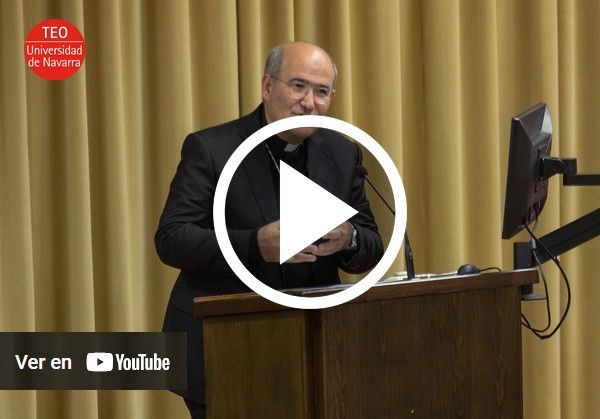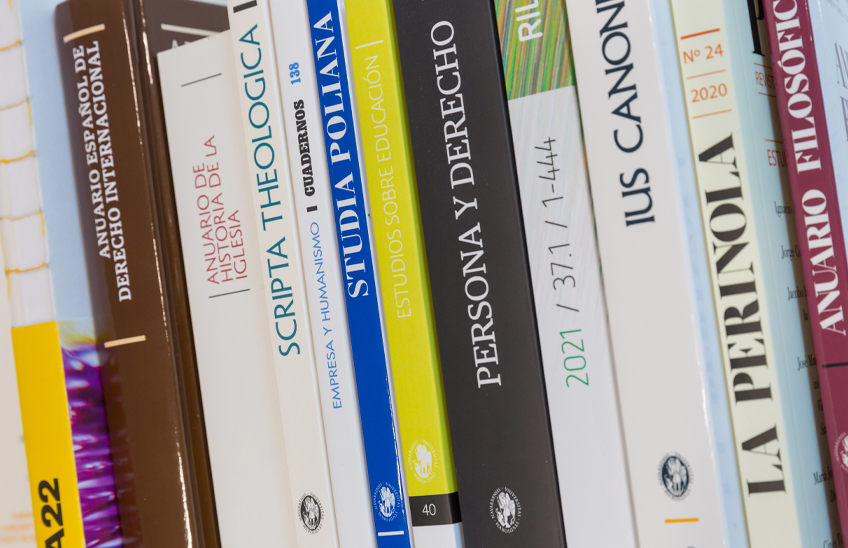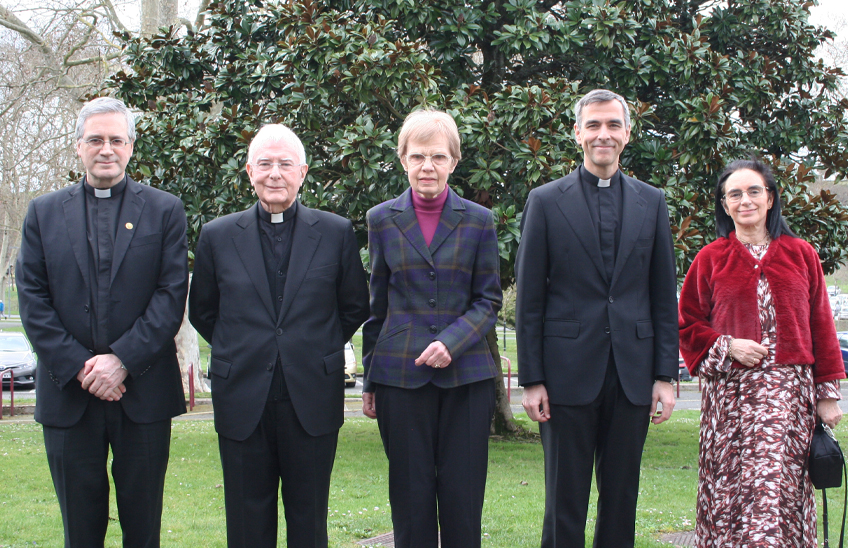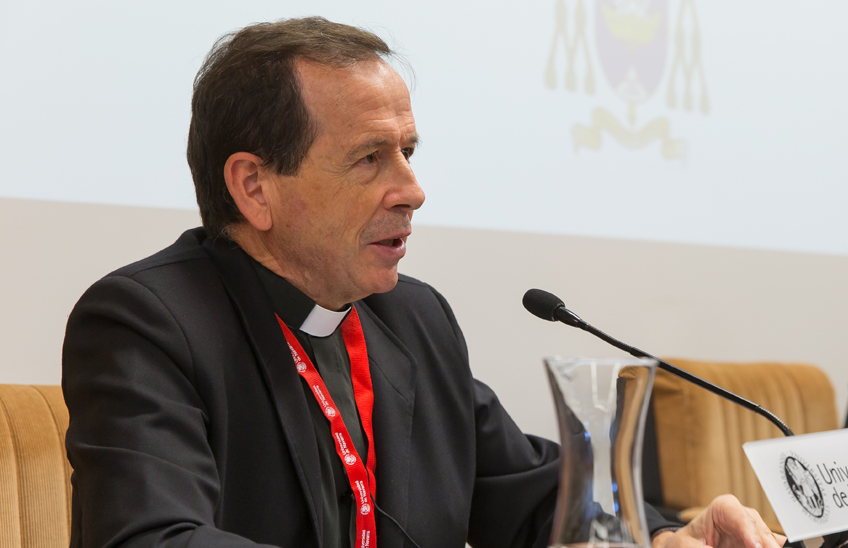"Theology is not great only because of its past but also because it will be an indispensable tool for thinking the future."
Cardinal José Tolentino de Mendonça participates in an academic workshop at the University on Christian Inspiration
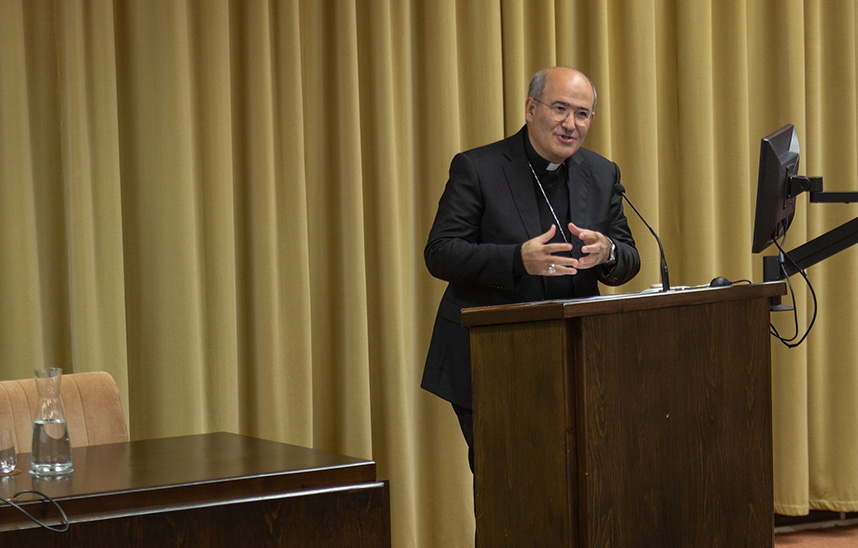
"Theology is not great only because of its past, but also because it will be an indispensable tool to think about the future," said Cardinal José Tolentino de Mendonça at the University of Navarra. The Prefect of the Dicastery for Culture and the Education closed the workshop 'Christian Inspiration of the University', organized by the School of Theology of the academic center.
In his message he stressed that a Christian-inspired University must help people to discover their uniqueness and to be protagonists of their own history: "They must show the world with creativity the richness of Catholicity, its anthropology, its care for the human being and the environment". In this sense, he explained that the University is a great laboratory for dialogue and also for dialogue with Christ, and for this teachers, professors, students, researchers and witnesses are needed.
He recalled that the University was born from the union of professors and students in the love of knowledge, stressed the importance of the institution's dialogue, both inward and outward, and emphasized that the Schools and Departments are an archipelago where the truth is lived as a common and passionate experience, and not as "a set of loose islands". "The University is a society in which we are together to generate knowledge and I am glad to see that the University of Navarra's Strategy 2025 is directed along these lines. Talking about an interdisciplinary university is true innovation, that is the way," he said.
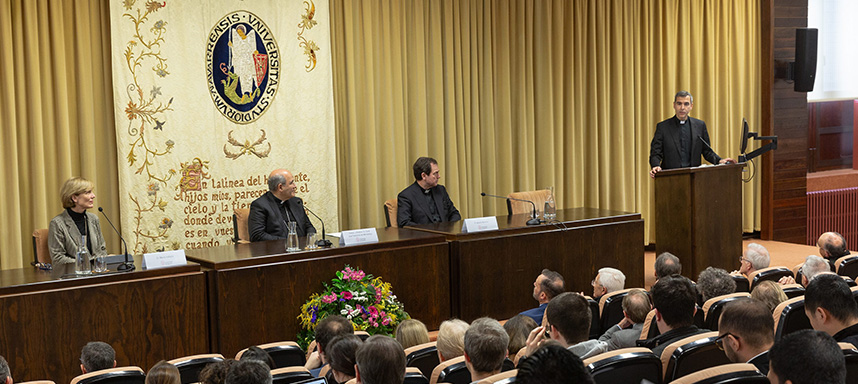
The University, core topic to give the ecclesiastical sciences their relevance.
For Cardinal Tolentino de Mendonça, the ecclesiastical sciences (theology, Canon Law and Philosophy) lend a hand to the other disciplines in their search for meaning, indispensable for the identity and mission statement of a university. Hence the Christian-inspired universities "have the responsibility to support the ecclesiastical sciences by placing them in the university system and affirming them in their full citizenship among the sciences." And he said: "Let us help everyone to understand their very high relevance for today's world and for the future".
For her part, the president of the University of Navarra, María Iraburu, thanked Cardinal Tolentino de Mendonça for his presence at the academic workshop and for his willingness to open new horizons for dialogue with contemporary culture: "His example, his support and his literary production give us encouragement and new ideas to continue with this task".
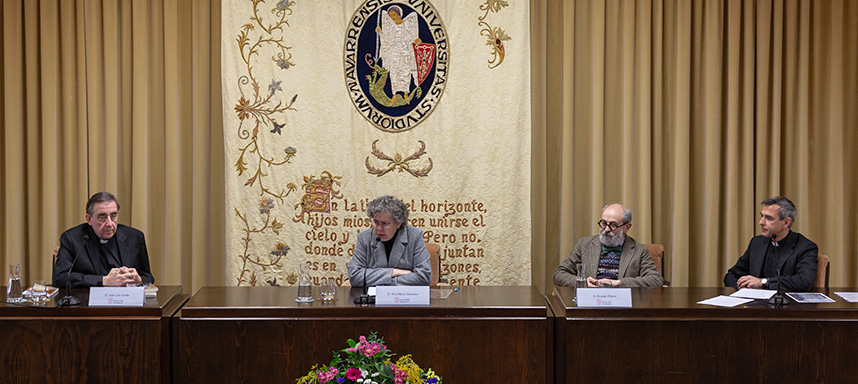
From left to right: Juan Luis Lorda, Ana Marta González, Ricardo Piñero and Gregorio Guitián.
During the meeting a roundtable was also held with the University professors Ana Marta González, from the School of Philosophy and Letters; Juan Luis Lorda, from the School of Theology; and Ricardo Piñero, director of the Institute Core Curriculum. Professor González presented 'The question of meaning in the universities of research: the Christian contribution'; Professor Lorda explained 'The role of Theology in the University'; and Professor Piñero focused his message on 'The program Core Curriculum: a transforming teaching '.
LECTURE CLOSING CEREMONY - CARDENAL TOLENTINO DE MENDONÇA (PDF)
Playlist of the 3 interventions of the roundtable and the closing lecture of Cardinal Tolentino de Mendonça.

